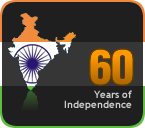Reliance would want to Invest Rs.25,000 Crores into this venture. In the article, there is a questions which has been put across whether this would fit into the Corporate responsibility or is there a business angle to it?
I feel that there is corporate touch to each aspect of service anywhere in this world. Probably, the NGO segment does not fall into this, but even NGO's work towards creating a model for self-sustainence and longitivity of the organization. So, will this work?
My opnion is that these kind of initiatives will definitely work, and especially, when corporates this big would want to venture into social problem related areas, there would be a huge impact on people. However, corporates venturing into Social problems need to have a different strategy while working on solutions. Traditionally, corporate thinking is different from a common man's thought process. Here are few pro's and con's of corporate involvement in social aspects:
Positives
- Initiatives are well marketed - People know about big organization and tend to look at what they are trying to do and play a role in it.
- Financial Strength - Organizations have good money and they are ready to take the risk of investing and taking risks.
- Management ability - Experienced people have good understanding of basic problems and hence they can manage solutions effectively.
Need Attention
- Organizations need to involve well-known and respected personalities who have worked/have been working in solving social problems. Having respective background knowledge would be a huge advantage.
- Corporates should not give/create their own direction to solutions of these problems, instead work in association with Government and people who are experienced in the respective fields.


